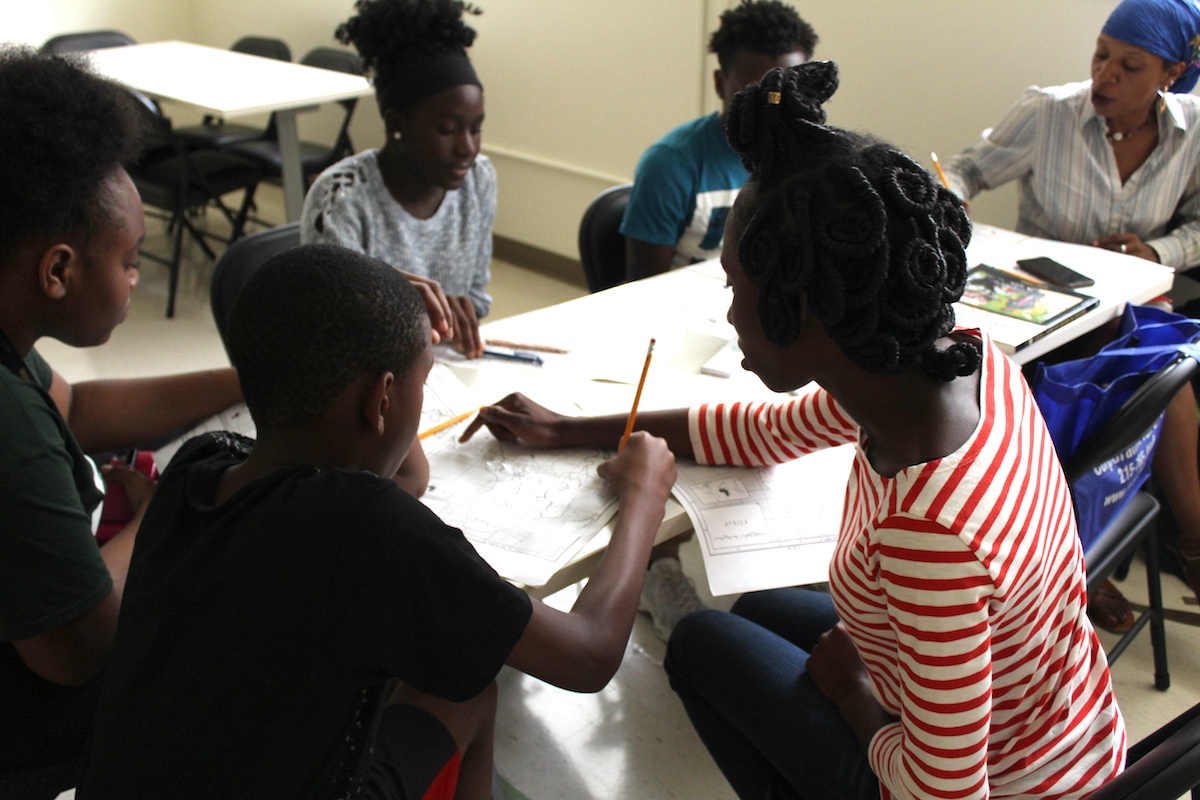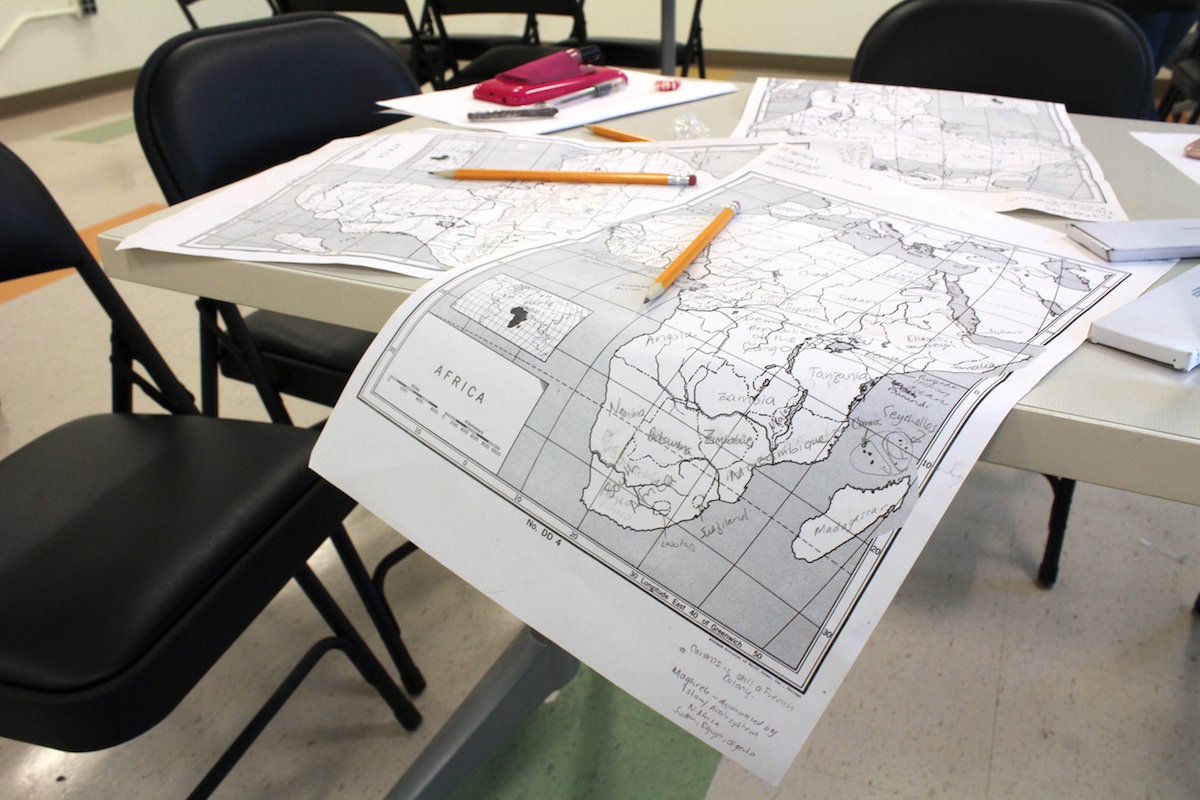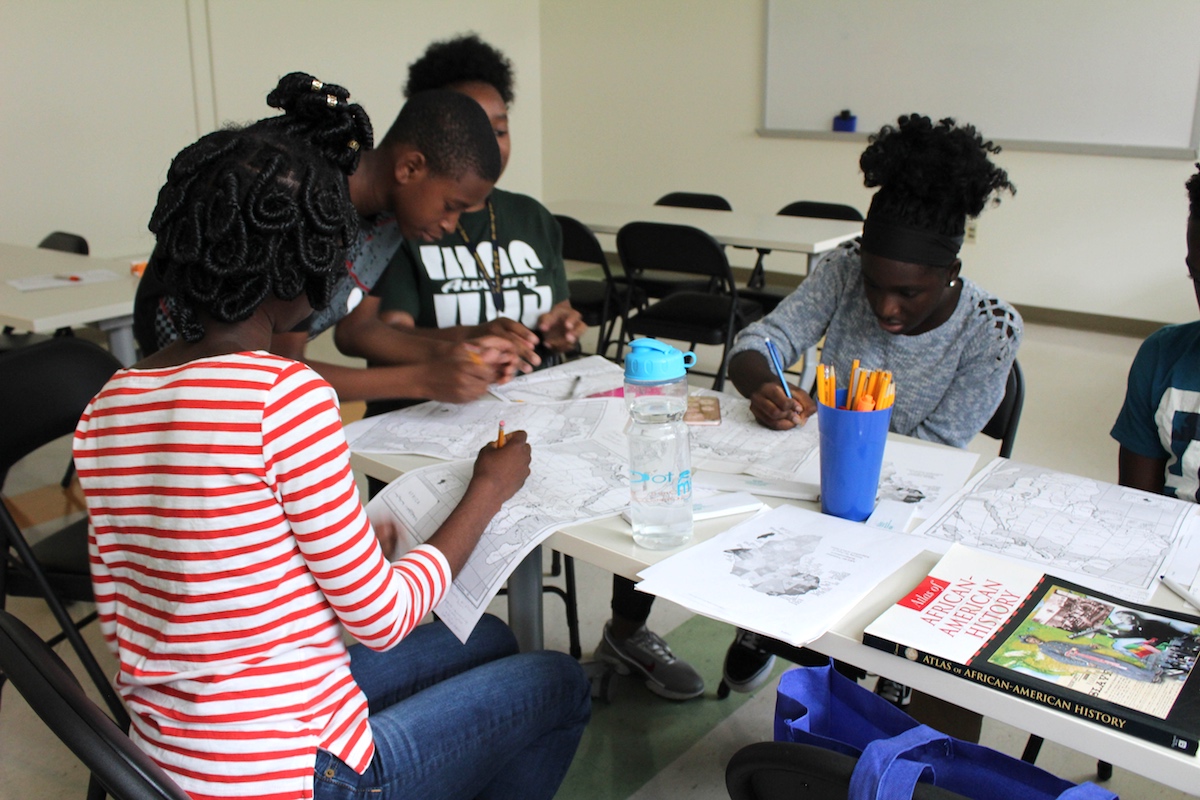This Philly program helps African and Caribbean immigrant youth thrive in their new city
 August 1, 2018
Category: Feature, Featured, Long, Method
August 1, 2018
Category: Feature, Featured, Long, Method
In 2016, immigrants composed 15 percent of the population in Philadelphia, while more than 25 percent of Philadelphians in recent years were immigrants or United States natives with immigrant parents.
This includes almost 76,000 people younger than 18 years old, making approximately one in four city children immigrants or first-generation Americans.
The West Philadelphia-based African Family Health Organization (AFAHO) recently launched its second annual summer African Youth Empowerment Program for a segment of this population: immigrant, refugee and asylee Caribbean and African youth. The initiative aims to help the youth integrate into Philadelphia society and improve their health and education through workshops, tutoring and other activities.
The program, which also holds sessions during the school year and is based at Drexel University’s Dornsife Center for Neighborhood Partnerships, started in September 2016 as a response to needs expressed by community members.
“A lot of the community members are not English-proficient [or] don’t have advanced literacy skills,” said Oni Richards-Waritay, the executive director of AFAHO. “Helping the kids with homework at home was an issue and helping the kids with English-language instructions was an issue.”
It’s much more than that, though.

Program Assistant Nana Adjeiwaa-manu (right) helps Abdrahaman (left) fill out a map of Africa detailing how countries gained independence. (Photo by Laura Smythe)
The summer session, which runs Mondays through Thursdays with occasional Saturday field trips, began July 9 and will end on August 23. Its days are themed: Math and Science Mondays, Arts and Culture Tuesdays, Nutrition and Wellness Wednesdays and Character-Building Thursdays.
During the school year sessions, students participated in workshops on topics such as bullying prevention, internet safety, reproduction and sexual health, effective communication and public speaking, and self-image affirmation. They also created vision boards of their five-year plans, took African and Caribbean dance classes and explored parts of the city new to them on field trips to places like the Penn Museum, Cheyney University, the Philadelphia Zoo, parks and urban farms.
"I like being here because it’s a situation where there's other people that are from different places just like me."
“A lot of them had never been on any trips before because parents don’t know about these places or couldn’t afford the tickets,” Richards-Waritay said. “A lot of them [stay] in the neighborhood they reside in and don’t get to venture out that much.”
This summer, students will again visit the Penn Museum and Cheyney University, in addition to the University of the Sciences, the African American Museum in Philadelphia, the Franklin Institute, the National Constitution Center and other locations.
Richards-Waritay said the campers — many of whom are recent immigrants from countries like Haiti and Congo — are vulnerable in many aspects, including their educational and health outcomes and self-awareness in U.S. society.
“If we have the opportunity to support them and provide them with the information they need to make better choices about their health, better choices about their social life and also to do well in school … it could play a huge role in changing their trajectory,” she added.

African Youth Empowerment Program participants filled out a map of Africa detailing how countries gained independence at the Dornsife Center on July 24. (Photo by Laura Smythe)
These immigrant and refugee youth face a unique set of challenges as they begin to integrate into Philly schools and local communities. A major problem they face is bullying, which often stems from cultural differences and misunderstandings.
“[The kids] come in all happy and joking from wherever they came from and all of a sudden they experience this low bout of self esteem because they’re being teased because of the way they look,” said Yves-Marie Desir, the youth program coordinator at AFAHO who runs the youth empowerment program.
"You can still be African and be American, too. You can still be yourself, keep your identity."
The youth program helps participants form strong friendships by creating a safe environment for them to discuss bullying and other experiences they have in common. Program participant Abdrahaman, 11, said it’s easier to connect with other students in the youth program than it is at school.
“I like being here because it’s a situation where there’s other people that are from different places just like me,” said Abdrahaman, whose parents are from Mali. “I feel like it’s a good opportunity to talk to people who are from Africa just like me.”
In addition to the social challenges the youth encounter as they assimilate into Philadelphia, they experience systemic issues that can disadvantage them. The students often don’t have access to resources they need, like language support, in the public schools, Richards-Waritay said.
“Some had to go to different schools in the school district several times,” she added. “The schools might send letters or information home to the parents, but the parents don’t understand it so something might not get done.”
As part of the youth program, AFAHO does advocacy work in the children’s schools to address these issues. Staff members will accompany parents to schools to bridge the language gap and help them fully understand what’s happening with their kids, the resources available to them and the process for accessing them.

Program Assistant Nana Adjeiwaa-manu and participants Abdrahaman, Iyonnah and Maruth (left to right) fill out a map of Africa detailing how countries gained independence at the Dornsife Center on July 24. (Photo by Laura Smythe)
Desir said she hopes by providing students with respect and support they will leave the youth program appreciating themselves and their culture.
“One thing that people do is when they come to the United States, they think that in the assimilation they have to lose themselves,” she added. “You can still be African and be American, too. You can still be yourself, keep your identity and be in America, too.”
"At first I didn’t really think much about Africa. Now that I'm learning more about it, it empowers me."
For 13-year-old program participant Maruth, the program helps her connect with her roots. Maruth is a first-generation American whose parents are from Liberia.
“There’s kind of this disconnection [of] where I come from,” she said. “I have my mom, she’s African, I can learn things from her, but there’s a deeper part to it I don’t understand. I feel like this program will shine a light on that.”
Maruth added the program has helped improve her self-esteem.
“At first I didn’t really think much about Africa, I thought it was just a place that I came from and that was it,” she said. “Now that I’m learning more about it, it empowers me. I came from this rich continent and I feel nice.”
Richards-Waritay said she can see the effects of the program in the reduction in phone calls about problems the organization receives from the kids’ parents and schools, as well as in the students’ increased confidence, as in Abdrahaman’s case.
The program “gave me [the strength] not to be afraid to show I’m African and [to understand] there’s nothing wrong with that,” Abdrahaman said. “I used to feel like because I’m African I used to get picked on, but I don’t even feel that way anymore. I can express myself.”
Trending News









